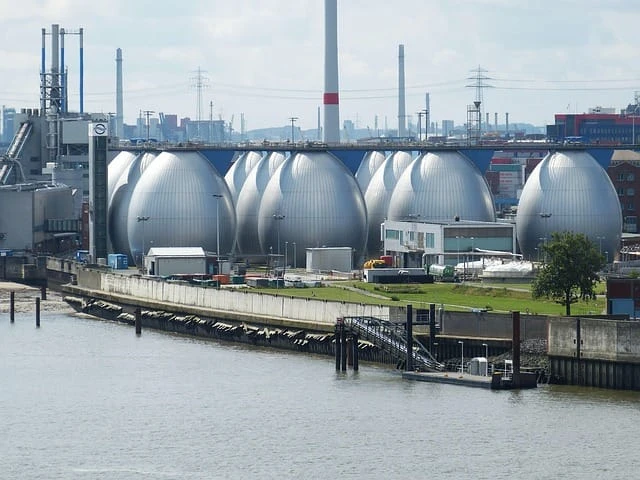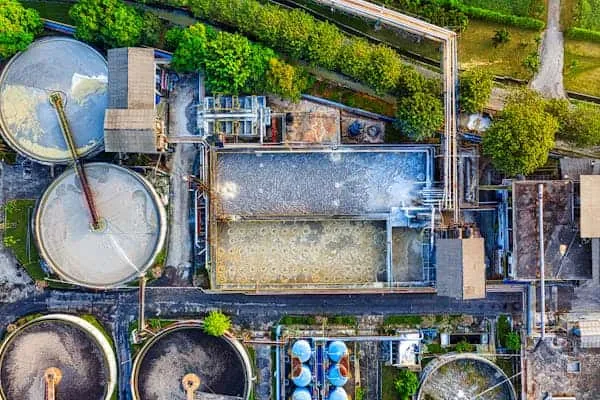1. Application of chlorine dioxide in hospital sewage treatment

At present, the main methods of sewage treatment in hospitals in the United States are liquid chlorine disinfection, sodium hypochlorite disinfection, ozone disinfection and chlorine dioxide disinfection. Among them, although liquid chlorine has a lower cost, it has been gradually eliminated due to the risk of high-pressure leakage during transportation and storage. The sodium hypochlorite method requires a large storage space, high initial investment, and high operating costs, so the utilization rate has declined. Although ozone disinfection is highly efficient, the equipment investment and operating costs are much higher than other methods, so its application is limited. In contrast, the chlorine dioxide disinfection method has become the mainstream choice for sewage treatment in hospitals in the United States due to its high efficiency, safety and economy.
The advantages of chlorine dioxide mainly include:
Safe transportation and storage: Chlorine dioxide products are easy to transport and store, and no high-pressure containers are required, which reduces the risk of leakage.
Ready-made and ready-to-use: The use of a chlorine dioxide generator can generate disinfectants instantly, avoiding storage problems and improving safety.
Easy to operate: The chlorine dioxide generator has a high degree of automation, low operating and maintenance costs, and is suitable for long-term use in hospitals.
Highly efficient sterilization: The sterilization capacity of chlorine dioxide is 2.63 times that of liquid chlorine. It has strong oxidation capacity and can effectively kill pathogenic microorganisms. It also has a significant degradation effect on BOD5 (biochemical oxygen demand) in sewage.
2. Application of chlorine dioxide in circulating cooling water

In the industrial field of the United States, circulating cooling water systems often face problems of microbial growth, such as nitrite bacteria, denitrifying bacteria and sulfate-reducing bacteria. Chlorine dioxide has excellent sterilization effect on these bacteria and will not affect the corrosion inhibition performance of organic phosphorus water stabilizers. Compared with traditional chlorine disinfectants, chlorine dioxide will not cause corrosion to metal equipment while ensuring the sterilization effect. Therefore, it is widely used in industrial circulating water systems.
3. Application of chlorine dioxide in oil production wastewater treatment

Oil production wastewater contains a large amount of petroleum substances and suspended matter. Traditional chlorine disinfectants may reduce the sterilization effect due to interference from organic matter. Chlorine dioxide has selective oxidation characteristics, is not affected by oil and suspended matter, and can stably exert its disinfection effect. In addition, chlorine dioxide is not affected by bacterial resistance, can effectively kill fixed bacteria, and prevent microbial-induced corrosion, so it has unique advantages in oilfield wastewater treatment.
Characteristics of chlorine dioxide disinfectant
Chlorine dioxide is a strong oxidant, not a chlorinating agent. After disinfection, it mainly produces harmless oxides and does not produce carcinogenic chlorinated organic matter. Compared with traditional chlorine-containing disinfectants, chlorine dioxide has no irritating odor, is non-corrosive to equipment, and has a stronger bactericidal effect. Therefore, it is widely used in the field of sewage treatment, which helps to reduce water pollution, protect the ecological environment, and promote sustainable development.
Conclusion
Chlorine dioxide has become an important disinfection technology in the field of sewage treatment in the United States due to its high efficiency, safety, and environmental protection. In the future, with the improvement of environmental protection requirements, the application scope of chlorine dioxide will be further expanded, making greater contributions to water resource protection and sustainable development.